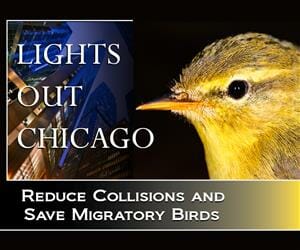Illinois Legislative Preview
By Stephen S. Morrill, Principal of Morrill & Fiedler LLC (M&F)
Policy decisions made in Springfield greatly impact the commercial office industry and BOMA/Chicago members have an ongoing interest in Illinois election outcomes. As a follow up to last week’s blog about the 2018 Illinois election results, this discussion will provide insight into how the election outcomes will shape the Illinois General Assembly’s agenda and future political landscape.
Veto Session Update
The first week of 2018 fall veto session began on Tuesday, November 13 and ran through Thursday, November 15; the second week will be held from November 27 through 29. In 2018, Governor Rauner issued a total or amendatory veto to 83 pieces of legislation. Legislative leaders and senior staff previously suggested that the veto session would focus on its key purpose of considering gubernatorial vetoes, which proved correct in its first week, where 39 vetoes were overridden either the House or the Senate. Overrides will now “switch” houses to be voted on by the second chamber. Substantive legislation may be taken up on a case-by-case basis, but the majority of new substantive legislation is likely to be delayed until either the January “lame duck” session (expected to be scheduled sometime between January 1, 2019 and the inauguration of the 101st General Assembly on January 9, 2019) or the 2019 spring session.
Governor-elect Pritzker will be focusing his transition into the Office of the Governor. Pritzker has announced his Transition Committee and his administration’s Chief of Staff. Serving as his Transition Committee Chair is Lieutenant Governor-elect Juliana Stratton and campaign manager Anne Caprara will serve as Chief of Staff. As part of the process, the Transition Committee will likely begin vetting potential candidates to serve as new state agency heads (which require Senate confirmation), members of state boards and commissions (many of which require Senate confirmation), new administration and agency general counsels, and policy and legislative staff, among other personnel decisions. The Transition Committee will also advise on budget issues and relationship-building in the legislature. We will continue to monitor key personnel identified by the Pritzker Transition team for key roles in state agencies and the administrative cabinet.
Lame Duck Session Preview
The “lame duck” session refers to legislative session that occurs after new legislators have been elected, but before they begin their terms in a newly convened General Assembly. New legislators will be inaugurated at 12 pm on January 9, 2019. If scheduled as anticipated, a “lame duck” session will occur sometime between January 1, 2019 and the inauguration on January 9, 2019, and it will be the last time that out-going legislators will vote on legislation. The primary difference between the fall veto session and the lame duck session is that all legislation advanced during the lame duck session (including those with an immediate effective date) only requires a simple majority vote for passage (bills with an immediate effective date advanced during the veto session require super-majority votes to advance). With at least 36 lame duck legislators able to be “free agents” regarding legislation, it is anticipated the 100th General Assembly may consider major legislation on multiple issues – the most likely being a capital infrastructure program with an associated source(s) of revenue.
2019 Spring Session Preview
While the four legislative leaders are likely to remain the same, there will be significant changes in the make-up of the leadership teams given the significant legislative retirements in all four caucuses. Further, both chambers will need to revise the rules for each chamber, determine the number of substantive committees, and the chair/spokesman for each committee (the House will have a more difficult adjustment given the greater shift in membership).
Additionally, it is anticipated that the issues likely to dominate the 2019 session include, but are not limited to: (a) the FY20 budget – Pritzker’s initial state budget – and whether it includes any new income or sales taxes; (b) a capital infrastructure program – targeted to be significant in size, but also requires a stable funding source; (c) gaming expansion/sports betting; (d) legalization of recreational marijuana; (e) pension reform; (f) energy procurement standards; and (g) a constitutional amendment to authorize a graduated income tax. Governor-elect Pritzker recently stated that he will not, in 2019, seek to enact a “pseudo graduated income tax” via state legislation – instead focusing on the constitutional amendment. It is also expected that Governor-elect Pritzker and the Democratic legislative leaders will begin initial discussions on the upcoming legislative redistricting map process that must be adopted in 2020.
BOMA/Chicago’s legislative team will be involved in the General Assembly at every stage and during every session. Members, be sure to follow the Advocate e-newsletter for updates from Springfield.
M&F has represented BOMA/Chicago before Illinois state government for many years and of counsel at Barnes & Thornburg LLP. Also contributing to this article are Curt Fiedler, Gary Hannig, Chuck Hartke and Hannah Smith, Morrill’s colleagues at M&F.

